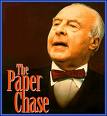Podcasting Legal Writing Lessons
 Over the course of the six years I have taught here, the Law School’s technological resources have gotten better and better. For instance, every classroom in which I teach now has equipment that allows me to project documents onto a screen at the front of the classroom, working on edits as we discuss them in the classroom. I can project from the web as I discuss legal research tools, such as the law library’s helpful start page. I can play audio or video files for the class, such as tapes of oral arguments from oyez.org or from the Wisconsin Supreme Court site for my appellate writing and advocacy class.
Over the course of the six years I have taught here, the Law School’s technological resources have gotten better and better. For instance, every classroom in which I teach now has equipment that allows me to project documents onto a screen at the front of the classroom, working on edits as we discuss them in the classroom. I can project from the web as I discuss legal research tools, such as the law library’s helpful start page. I can play audio or video files for the class, such as tapes of oral arguments from oyez.org or from the Wisconsin Supreme Court site for my appellate writing and advocacy class.
Most recently, with the help of our IT department I have been using digital recording technology (a headset microphone and audacity software) to record some of my instruction and make it available for students to work through at their convenience. The podcasts are especially effective for material that some students need more help with than others, such as citation, grammar and punctuation, or editing for conciseness. Last semester, my students’ responses to the podcasts was overwhelmingly positive.
The pioneer podcaster among the legal writing faculty was Alison Julien, who, I understand, has moved on to “webcasting,” i.e., digital videorecordings of her instruction.

